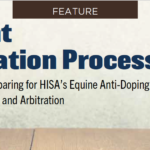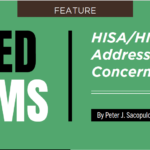Source: Daily Report for Executives: News Archive > 2011 > October > 10/07/2011 > Special Report > Electronic Commerce: Groupon Business Model Draws Scrutiny From Ethics Boards, Professional Groups
195 DER C-1
Electronic Commerce
Groupon Business Model Draws Scrutiny
From Ethics Boards, Professional Groups
————————————————————————————————————
BNA Snapshot
Groupon Model ‘Fee-Splitting’ Debate
Key Development: State ethics boards and commissions are increasingly being asked to determine whether professionals offering services though sites such as Groupon and LivingSocial are engaged in illegal fee splitting.
Potential Impact: Professionals face potential discipline up to and including the loss of their professional licenses in states taking a hard line on fee splitting.
————————————————————————————————————
By Michael Bologna
CHICAGO—Earlier this year an inquiry arrived at the Oregon Board of Dentistry about a dentist using an internet-based “daily deal’’coupon site to broadcast an offer for crown services at the rock bottom price of $225.
The anonymous writer punctuated the inquiry with a question: “Is this legal?’’
Patrick Braatz, executive director of the state dentistry board, said he was stunned by the solicitation at multiple levels.
First, the offer seemed too cheap to be legitimate. While fees vary, Braatz knew that $225 was roughly a quarter of the price any consumer in Oregon should expect to pay for a crown.
Secondly, the offer treated a complicated dental procedure like a high-volume commercial service.
“Changing oil at Jiffy Lube is pretty much an exact science. Dentistry and medicine are practices, and they are not exact sciences,’’ Braatz said. “The crown I put in your mouth is bound to be different from the crown in someone else’s mouth and there are bound to be complications. What kind of person is going to want to deal with complications if he’s only charging$225 for a crown?’’
Fee-Splitting Worries
Finally, Braatz was extremely concerned that the dentist was paying a commission to the web-based coupon service in violation of Oregon’s ethics and unprofessional conduct regulations. Specifically, the regulations carry strict prohibitions against fee splitting—the practice of sharing fees with a third party in return for a referral.
The inquiry heightened Braatz’s awareness of offers for dental services on sites such as Groupon and LivingSocial, and triggered a review of the practice with the help of the Oregon Department of Justice. Following that review, the Board of Dentistry released a statement in September indicating that dental offers featured on daily deal web sites likely violate Oregon’s unprofessional conduct rules.
Braatz followed the statement with a postcard to every licensed dentist in the State of Oregon. The Oregon Board of Chiropractic Examiners took very similar action at the same time.
Emerging Battle
Legal scholars specializing in professional conduct issues told BNA the two Oregon boards are at the vanguard of an emerging battle that will pit state licensing boards, ethics commissions and professional societies against daily coupon websites selling vouchers redeemable for discounted professional services. A key question for these boards and commissions is whether the unique platforms offered by the estimated 600 online coupon clubs are permissible channels for professionals to collect clients and advertise services.
Some of these bodies will conclude that coupon clubs represent a unique, but legitimate, avenue for fee-based advertising. Indeed, committees overseeing attorneys in South Carolina and North Carolina made such findings in recent months.
But others will follow Oregon’s lead and determine that professionals interacting with these clubs are violating state ethics rules regulating dentists, doctors, attorneys, accountants and dozens of other professionals.
Andrew Perlman, a professor at Suffolk University Law School in Boston and an expert on legal ethics, said fee splitting rules have existed in most state ethics regulations for decades. Perlman said the rules seek to prevent third parties from exercising undue influence over the conduct of licensees in the performance of their professional duties. In theory, he said, the spitting of fees is unethical because such arrangements could conflict with the best interests of the users of professional services.
By way of example, the New York Education Law, which addresses professional misconduct by physicians, prohibits “directly or indirectly offering, giving, soliciting, or receiving or agreeing to receive, any fee or other consideration to or from a third party for the referral of a patient or in connection with the performance of professional services.’’
In addition, the Education Law prohibits “permitting any person to share in the fees for professional service, other than:a partner, employee, associate in a professional firm or corporation, professional subcontractor or consultant authorized to practice medicine, or a legally authorized trainee practicing under the supervision of a licensee.’’
Varying Penalties
While penalties vary by state and the degree of the infraction, professionals disciplined for fee splitting could conceivably lose their licenses. The American Bar Association is unaware of any professional bodies taking disciplinary action against a licensed professional for sponsoring a coupon club style promotion. However, Braatz said his staff has opened two investigations following the release of the Oregon Board of Dentistry’s policy statement.
Some see problems with the daily deal business model when measured against the specific prohibitions expressed in state statutes such as New York’s education law.
For instance, a daily deal site might post an offer for $400 worth of teeth whitening services by a dentist for the coupon price of $200. If 100 consumers agree to pay $200 for the coupons, the deal will generate a $20,000 pot of cash.
The dentist pays no fee to publicize the coupon offer, but he splits the $20,000 with the coupon club. The business model favored by most coupon clubs specifies that the club and the dentist split the revenues on a 50-50 basis. In the example, the club retains $10,000 and gives $10,000 to the dentist, who is now obligated to provide $40,000 in dental services to 100 new patients.
To many observers, there is little doubt that this transaction features the qualities state ethics rules were designed to discourage.
“You are paying a set number of dollars for a specific patient,’’ said Michael J. Sacopulos, a partner with Sacopulos, Johnson & Sacopulos in Terre Haute, Ind., whose practice specializes in medical malpractice defense. “It’s pretty hard to say that’s not splitting the fee—especially when the total amount is captured by someone else, who is retaining a chunk of it and paying you a portion. And keep in mind, it’s all money paid for professional services.’’
Sacopulos, who also serves as general counsel to the professional liability organization Medical Justice, added that physicians interacting with coupon clubs might have more problems than fee splitting. He said the transactions could also trigger federal scrutiny under the Stark laws governing physician referrals of Medicare and Medicaid patients, and federal anti-kickback statutes.
Sacopulos adamantly advises medical professionals to steer clear of promotions through coupon club channels.
Despite these views, Sacopulos concedes that the fee splitting question is shrouded in shades of gray because few ethics boards have issued guidance. Perhaps the reluctance is understandable because online coupon clubs didn’t even exist prior to three years ago.
Deal-of-the-Day Strategy
The deal-of-the-day platform was arguably invented in October 2008, when Chicago-based Groupon began selling vouchers designed to highlight local goods and services. The concept became wildly popular in a matter of months, providing shoppers with opportunities to save money at restaurants, dry cleaners, yoga studios, and car washes.
Merchants flocked to Groupon, hoping the service would flood them with new customers. While businesses were offering their goods and services at a loss, they were betting that the promotions would generate larger pools of long-term customers and positive word-of-mouth reviews.
Groupon’s strategy has achieved remarkable success. The company operated in just five markets in the United States and employed 37 people on June 30, 2009. The numbers grew to 175 markets in North America and additional markets in 45 countries by June 30, 2011. Over the same period Groupon’s subscriber base grew from 152,203 consumers to 116 million, and the number of merchants offering goods and services grew from 212 to 78,466. The venture now employs nearly 10,000 people.
Washington-based LivingSocial, Groupon’s biggest rival, has seen similar extraordinary growth. Launched in July 2009, the company now has 46 million members worldwide, and operates in 25 countries.
Business development experts believe consumer spending through coupon clubs will continue to grow at rates as high as 35 percent annually for several years. The Virginia-based consulting and research firm BIA/Kelsey recently published a report pegging domestic consumer spending on daily deal websites at $1.25 billion for 2011. But the number is expected to climb to as much as $6 billion by 2015.
Regulators Beginning to Move
In light of this trajectory, Perlman and Sacopulos said state bodies regulating professionals will eventually have to deal with the fee splitting question. Still, very little substantive action has occurred to date.
With respect to medical professionals, the Oregon Board of Dentistry and the Oregon Board of Chiropractic Examiners may be the only licensing boards in the country to have taken formal action. Officials with New York’s Office of Professional Medical Conduct and the Medical Board of California told BNA they have not addressed the issue with licensees and do not foresee any guidance projects on the question.
However, the Illinois Department of Financial and Professional Regulation, which regulates dozens of medical and financial professions in the state, is considering a formal guidance project.
“We are looking at the way professionals use Groupon and asking whether this is actually fee splitting,’’IDFPR spokeswoman Susan Hofer told BNA. “Fee splitting is illegal. We are going to have concerns if we see Groupon taking fees from doctors to refer consumers for medical services.’’
David Harlow, a health care attorney and consultant who heads up The Harlow Group LLC in Newton, Mass., said he is not surprised state medical boards have not addressed the issue. Offers for medical services on sites such as Groupon and LivingSocial are still relatively new. State boards, he added, tend to be underfunded and overloaded with cases focusing on practitioner misconduct.
Harlow applauded Oregon’s action on the fee splitting question, but predicted other states would reach different conclusions. Coupon club transactions do not suggest the type of undue influence that medical ethics rules were designed to address. He said boards frequently tolerate transactions by medical professionals linked to fees without alleging illegal fee splitting. A familiar example involves bill collection services that take six percent of the collections before remitting the remainder to the medical practice.
“I’m glad to see that Oregon took this on, but I think it could have come out differently,’’Harlow said. “I think there is a way to deal with this. You could have had an arrangement where you cap these fees or recognize them as the cost to advertise.’’
Suffolk Law School’s Perlman said only two state bodies regulating the conduct of attorneys have addressed the fee splitting question in a formal way.
Carolinas OK Lawyers’ Groupon
Last month, the South Carolina Bar Ethics Advisory Committee issued an opinion finding that lawyers’ use of daily deal websites to sell coupons for discounted legal services does not violate Rule 5.4(a), which prohibits the sharing of fees with nonlawyers. However, the opinion cautions that the use of such websites must be in compliance with Rules 7.1 (Communications Concerning A Lawyer’s Services) and 7.2 (Advertising) and could lead to violations of other rules if certain logistical issues are not addressed.
In July the North Carolina State Bar Ethics Committee issued a very similar proposed opinion, permitting lawyers to promote their services over Groupon-style websites. Among other things, the North Carolina opinion determined that the fee paid to daily deal sites constitutes the cost of advertising and does not violate Rule 5.4(a).
The North Carolina committee specifically noted that while the coupon company’s fee is deducted from the amount paid by a purchaser for the anticipated legal service, “it is paid regardless of whether the purchaser actually claims the discounted service and the lawyer earns the fee by providing the legal services to the purchaser. Therefore, the fee retained by the website company is the cost of advertising on the website and does not violate Rule 5.4(a) which prohibits, with a few exceptions, the sharing of legal fees with nonlawyers.’’
Perlman said he believes the two Carolina ethics committees reached the correct conclusions.
“My own feeling is that this should be considered a payment for advertising, and not impermissible fee sharing,’’Perlman said. “The rule was designed to protect lawyers’ professional independence and there really is no reason to think payments to Groupon adversely affect a lawyer’s professional independence.’’
Despite this view, Perlman advised lawyers practicing in the other 48 states to steer clear of coupon club offers.
“If you are a lawyer in a state other than North Carolina or South Carolina, there are still some open questions about whether you can ethically use sites like Groupon,’’Perlman said. “It is hard to say whether other states will reach the same conclusion. There are certainly legitimate ethical issues involved with using such sites, so a lawyer should proceed with caution. I would advise lawyers to try to generate an ethics opinion from the bar authority in their jurisdiction.’’
Perlman said associations promoting ethical standards in the practices of law, medicine, dentistry and other professions could help resolve the fee splitting question.
With respect to lawyers, Perlman said an opinion by the ABA Standing Committee on Ethics and Professional Responsibility would carry terrific weight with state ethics committees throughout the country. A spokeswoman for the ABA said the association’s Ethic 20/20 Commission is the only body considering the question. She said the commission is still gathering information about lawyers’ use of daily deal websites.
No AMA Directive
A spokesman at the American Medical Association said the organization has no formal policy or directive to its members involving the use of online coupon services. Moreover, the association has never been asked to investigate the legal issues pertaining to physicians’ use of such services.
The American Dental Association appears to be taking a more proactive posture with respect to professional services sold through coupon clubs. The ADA’s Council on Ethics, Bylaws and Judicial Affairs recently formed a subcommittee to explore the ethical considerations raised by the marketing of dental programs and the council plans to issue guidance upon the completion of that review.
In a statement provided to BNA, the ADA said it “advises that if dentists choose to use a marketing company to promote their practice that they carefully consider the company’s business practices, make sure all contracts are reviewed by their attorneys, and that they should adhere to the ADA Principles of Ethics and Code of Professional Conduct as well as all applicable laws.’’
Coupon Sites Respond
Groupon officials declined to discuss the fee splitting question, pointing to the “quiet period’’ required by the Securities and Exchange Commission as it prepares for an initial public offering. Still, the company stressed its commitment to compliance with all applicable federal and state laws.
“We make every effort to operate within the letter and spirit of the law,’’ the company said in a written statement provided to BNA. “We are operating in a new area of commerce and, as we become aware of interpretations of laws and regulations, we work with regulators to help define the bounds of the market.’’
LivingSocial expressed a similar commitment to compliance, but rejected the suggestion that its relationships with licensed professionals, particularly in the medical realm, could be viewed as an effort to influence their conduct.
“Fee splitting provisions were enacted primarily to ensure no inappropriate sharing of fees occurred between health care professionals or cross-referrals of patients,’’LivingSocial said in a written statement provided to BNA. “These provisions were enacted to protect potential patients from referrals made based on another medical professional’s financial interests, rather than the patient’s clinical needs.’’
The company added, “however, fee splitting concerns are not present in any LivingSocial arrangements. We are paid only for the marketing services offered to a broad spectrum of merchants, and the elective nature of the services provided to consumers is clear in the deals we run.’’
But Adam Banks, chief executive officer of the medical practice New York Sports Medicine and Physical Therapy, advised doctors and other professionals to take opinions from daily deal promoters with a grain of salt and seek advice from credible legal advisers.
Banks said medical practices in his state have been inundated with inquiries from aggressive sales agents with Groupon and LivingSocial in recent months. In most cases, he said the agents are recent college graduates with no formal understanding of the law or the ethical conduct issues associated with the practice of medicine. Professionals taking advice from such sales agents do so at their own peril.
“Groupon can come in and say ‘there’s no problem, no problem’ and sell this product in New York. And they won’t get into much trouble,’’ Banks said. “But a doctor is risking his medical license.’’
Text of the North Carolina State Bar Ethics Committee opinion is available at http://www.ncbar.com/ethics/propeth.asp.




